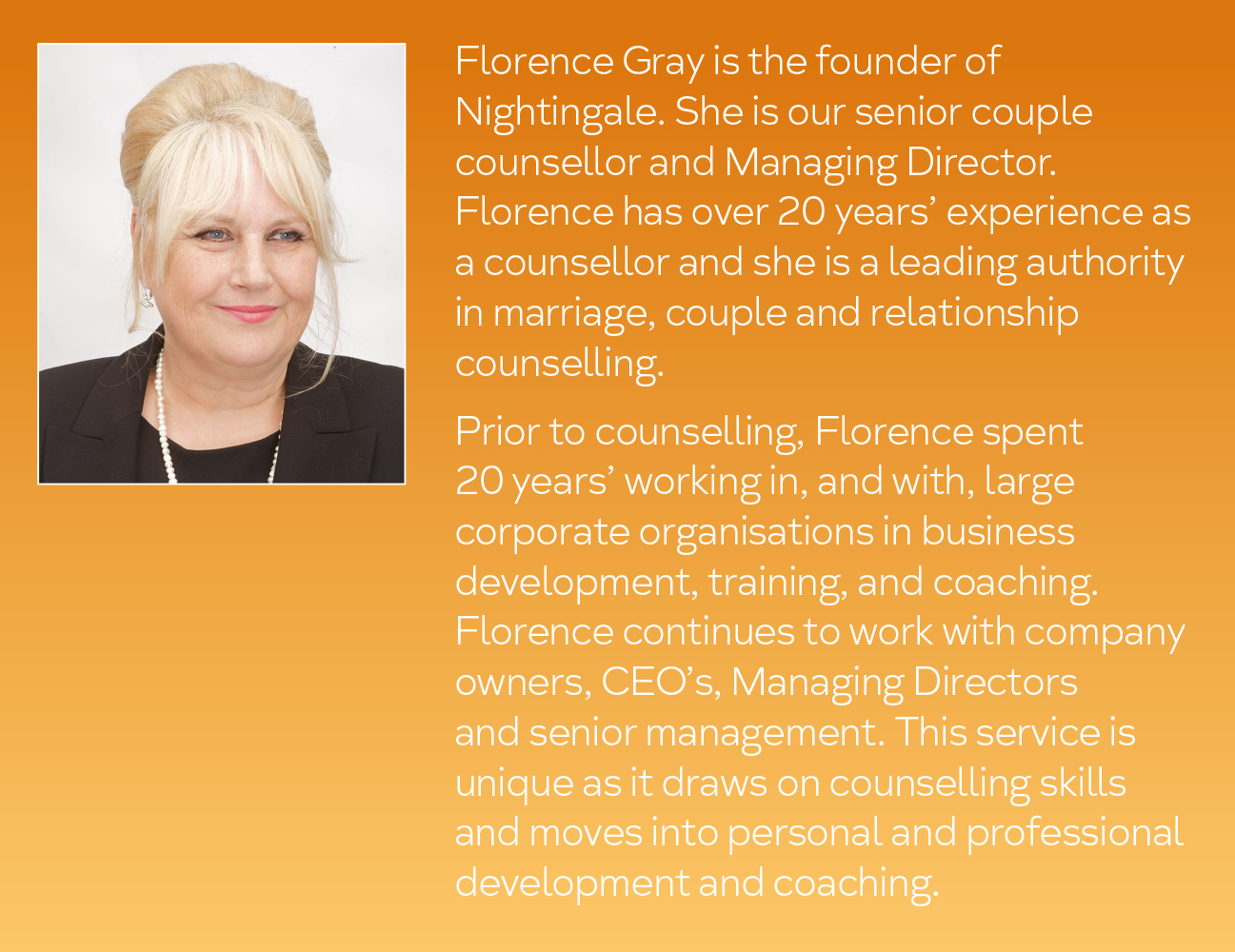Self Esteem
Self Esteem Do you feel you are never really considered? Do you do too much for other people? Are you treated as if you are not impor...
Read moreAssertiveness is the expression of your feelings, beliefs, opinions, and needs in a direct, honest and appropriate manner. Such assertive behaviour will reflect a high regard for your own personal rights as well as the rights of others.
Couples often present for couple counselling with an issue around communication. We work with them to change the negative patterns, break bad habits and help to understand with empathy. We also help them to listen to what each other are saying. However, an issue we see time and again is that one or other in the relationship has real difficulty with being assertive enough to say no. They can become resentful that they never get their needs met and accuse their partner of being controlling. When you are not used to being assertive you will build a lot of resentment around your relationship and you can slip into a depression as your emotions and needs are never met.

You have been thinking all day that you want to go for a Chinese meal with your partner. When you get home, you say to your partner that you would like to go for a meal tonight and your partner says, “great there is a new Indian restaurant I would like to try.”
You agree
Do you find yourself sitting eating the Indian food with resentment and anger building? Do you feel that your partner is controlling you? Do you feel like you never get your needs met?
When you return home later that evening, you start to feel disappointed and resentful that you didn’t get what you had been longing for all day. Of course, this could end up in an argument with your partner about something that is totally unrelated to the meal out. This is a very sad, confusing, and lonely place to be as you never feel anyone hears you. Sometimes it results in anger towards your partner and they end up confused and upset that you are annoyed with them.
All you needed to say was “Indian would be good maybe next week but tonight I really want Chinese.” Most of the time your partner will agree as they want to see you happy as this demeanour has a positive effect on them.
Reactive people bottle their emotions and they never really say how they feel for fear of rejection and disapproval. However, there usually comes a time when they erupt which causes confusion to the person on the receiving end as they see anger and aggression. When they behave in this way, they will seldom be heard which completes the self-fulfilling prophecy; “I am worthless and don’t deserve to be heard” (lower self-belief).
Proactive people disclose their emotions on a regular basis in a calm and assertive way. By doing this they are heard and respected by the person on the receiving end as there is no confusion. They are aware of their own failings and can own their own blame. They have overcome the fear of rejection and disapproval. Their self-fulfilling prophecy will be “I am worth it” (higher self-belief).
Learn to ask for what you want and say ‘NO’ to what you don’t want. Be very clear in your communication and you will get a different result.
Success in personal and work relationships is only achieved when we develop the ability to say ‘No’. ‘No’ is the cornerstone of assertiveness and self-confidence. When children start to say ‘No’ it is there first attempt to establish boundaries and develop their identity. Inevitably as we get older, we start to say ‘Yes’, hoping to please others and be a good friend, partner, or employee. We become ‘people pleasers’, yet it will never earn us the approval we desire. It is also exhausting and creates confusion and resentment. Instead of appreciating you, those around you will simply demand more. There are more effective ways to earn admiration and respect. If you never say “No” then how much is your “Yes” worth? Much of your ability to assert yourself and stand up for what you really want will depend on what you learnt during early childhood. You may be influenced by a parent who found it difficult to say ‘No’ for fear of being rejected themselves. It is also much easier to set boundaries if roles in your own family were clearly defined. In cases where parents act like children and expect their children to take care of them, and behave like adults, it can be more difficult to think about who you are, your boundaries and what limits you live within.
When you work together in couple counselling you can sort this part of your communication quickly and effectively.
Nightingale Counselling often runs personal development workshops around self-esteem, confidence, and assertiveness. Unfortunately, due to the current public health emergency, we cannot offer these. However, we are happy to work with you as a couple or individually if you feel this is an area you want to change.
For more information, please contact the Nightingale Counselling team on 0141 353 9373 or by using the contact form on our Contact page.
In our next blog post we will look at some common scenarios that you may face and how you can respond to them in an assertive manner. We will also give you some ‘tips and tricks’ about small changes you can make to become more assertive.

Assertive behaviour is ‘behaviour which enables a person to act in their own best interests, to stand up for themselves without undue anxiety, to express their honest feeling comfortably, or to exercise their own rights without denying the rights of others.
Calberti and Emmons (1974)
Follow us on our social channels